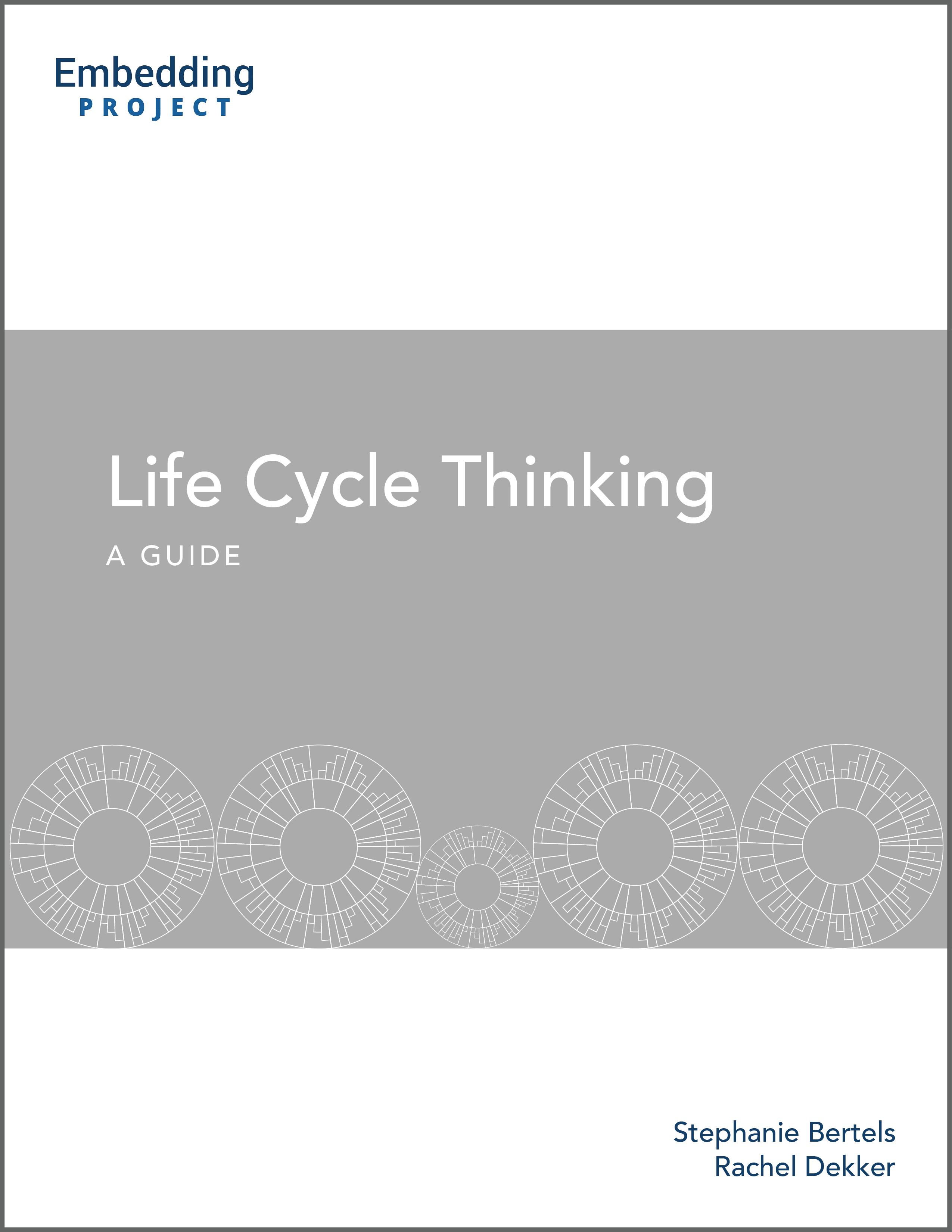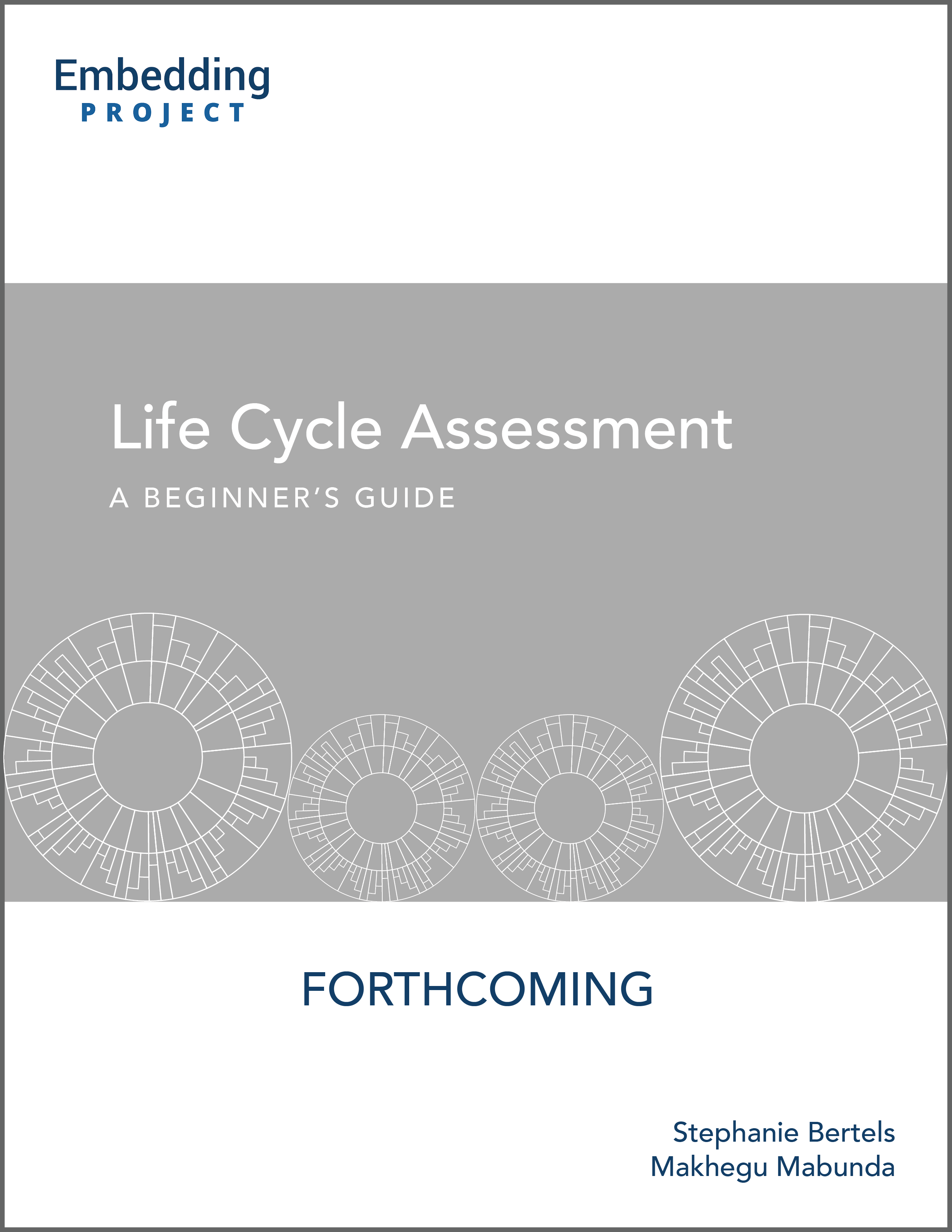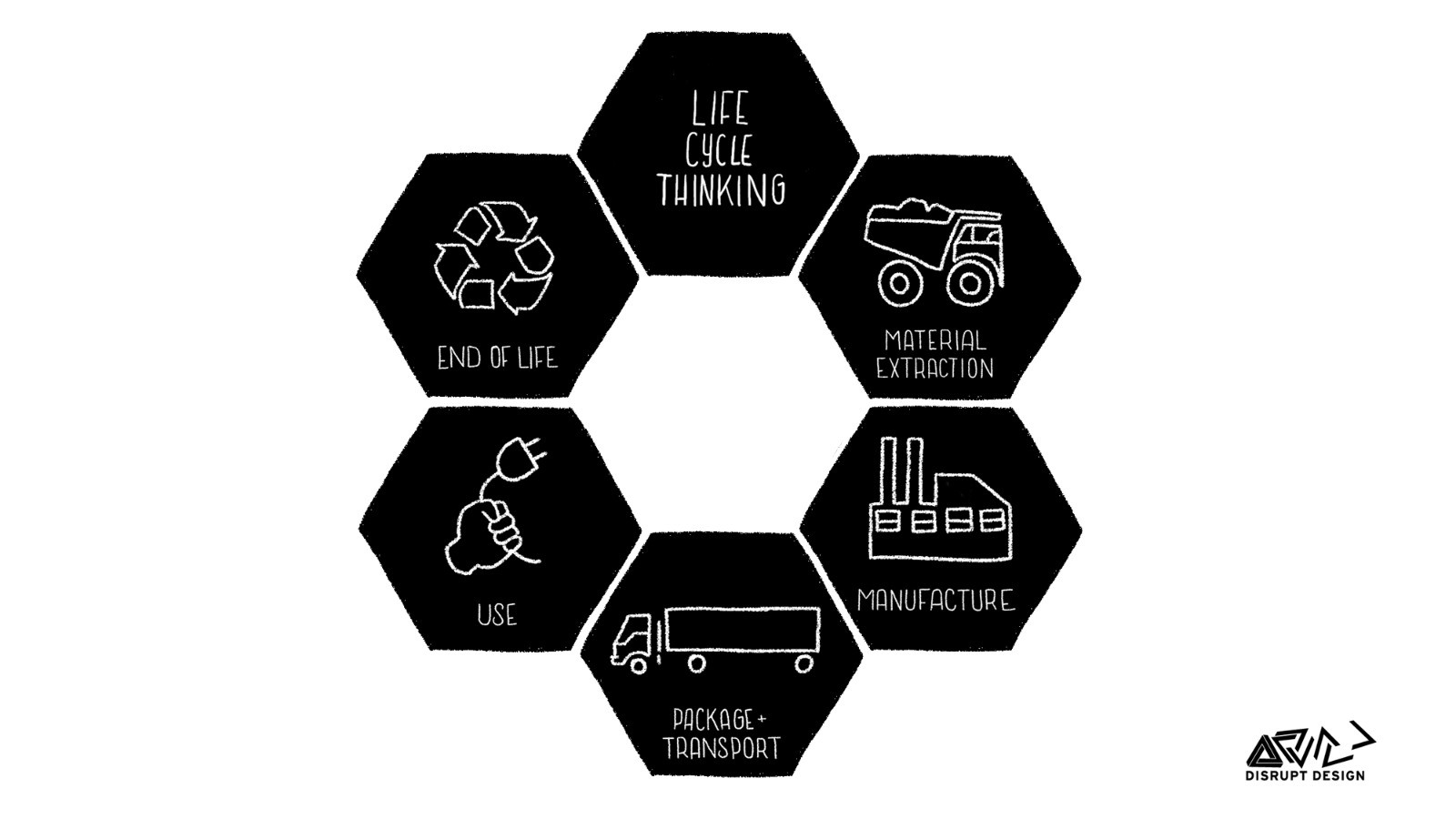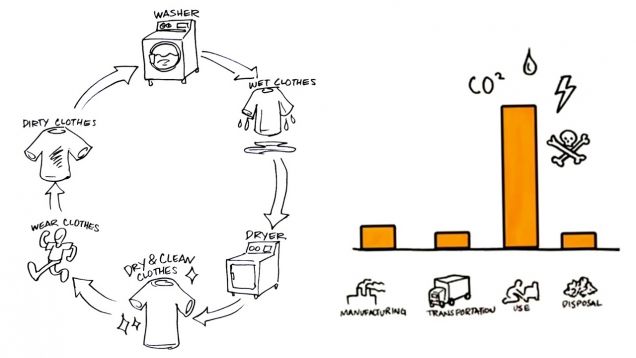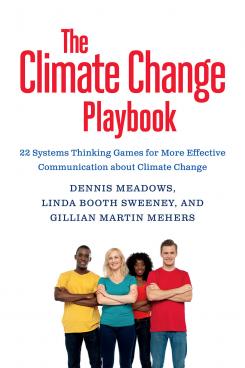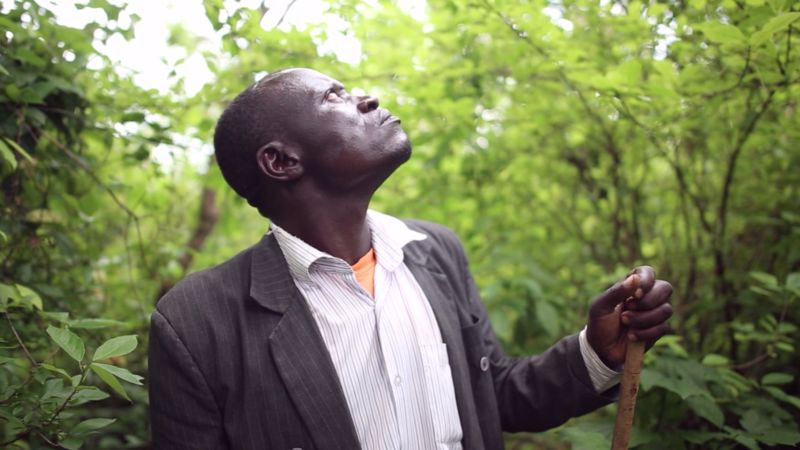Think Systemically
Description
These resources will help you to better understand how your company's activities impact, and are impacted by, the underlying patterns, relationships, and interdependencies in social and environmental systems. They will also help you to challenge systems of thinking and develop new ones informed by traditional, Indigenous, and local knowledge.
Share this Practice on:LinkedIn
Resources
Understanding Systems Thinking
Systems Thinking – The New Approach for Sustainable and Profitable Businesses
This brief article provides a high-level explanation of systems thinking in business, including what 'systems thinking' means, why it is important, and how companies can begin to adopt and embed it into their strategy. This resource is a good entry point for senior leaders that want to familiarise themselves with the concept of systems thinking.
Introduction to Systems Thinking
Daniel H. Kim's comprehensive yet concise primer on systems thinking will help you to learn the language and tools you need to start applying systems thinking principles and practices in your own organisation. This resource provides a high level explanation of systems thinking, discusses the defining characteristics and behaviour of a system, explores examples of how to manage systems, and introduces common and helpful tools such as the iceberg model. This an excellent starting point for any change agent or thought leader who wants to become better acquainted with the fundamentals of systems thinking.
What is Systems Thinking?
This concise systems thinking primer by Innovation North will help you to better understand complex issues. It introduces systems thinking principles and contrasts them against those of analytical thinking. The resource may be of particular benefit to sustainability practitioners tasked with supporting manager and senior leader to better understand the concept of system thinking, as well as anyone who is thinking about interconnected sustainability challenges.
Systems Mapping: What to use When and Why?
Are you new to systems mapping? Looking for a short-cut to putting tools to use? This short read will help you to match some of best available mapping tools with the stage you're at in a systems thinking process.
Supporting Systems Thinking in Your Company
Systems thinking is a crucial sustainability capability, but companies may face some hard-to-overcome hurdles when implementing a systems thinking approach. This blog post identifies common challenges that companies encounter, and suggestions on how to get unstuck.
First Nations Systems Thinking
This quick read from Common Ground explores how Indigenous communities within Australia have developed, used, and shared 'knowledge systems' through intergenerational thinking, being, and knowing. It will help you to better understand the interdependence between communities and natural systems, including how communities can positively influence the systems in which they're embedded.
Feedback loops: How nature gets its rhythms
This short video from TedEd will help you to understand how feedback loops work and how your business operates within larger systems of nature. It explains what positive and negative feedback loops look like, how they work together, and their relationship to the resilience of our natural world. The video will be useful as a quick introduction for decision-makers across your organisation.
Life Cycle Thinking
Life Cycle Thinking
This guide explains how life cycle thinking and mapping help you identify and better understand the potential impacts of your products and services on people and the environment. By exploring environmental and social impacts from your raw materials, through manufacturing and distribution, to customer use, and end of life, you can identify hot spots and leverage points to take action on.
Life Cycle Assessment
Our forthcoming guide on life cycle assessments help you understand the social and environmental impacts of your products or services. This guide explains what a life cycle assessment is, why your business might want to undertake one and what to know about the process before you reach out to an LCA consultant.
To be notified when this guide is released, sign-up for our monthly newsletter or follow us on LinkedIn.
A Guide to Lifecycle Thinking
This guide from Leyla Acaroglu, editor of Disruptive Design, provides an introduction to lifecycle thinking, identifies lifecycle stages and key components for analysis, and explains how to apply this approach within your own organization. Leyla also provides helpful tools and tips to get you started.
Whole Systems and Lifecycle Thinking
This short clip provides a great introduction to applying whole systems and lifecycle thinking to a product using the example of a clothes dryer. It was developed as a part of the Autodesk Education Community's Sustainability Workshop. The page also has a slide deck and video script, as well as links to information on Life Cycle Assessment, The Rocky Mountain Institute's 10xE design principles, and biomimicry.
openLCA
openLCA is an open-source life cycle assessment software that will help you find high-impact areas across the life cycle of your products or services. It supports access to nearly 100,000 sustainability data sets that can be integrated into your own assessments. The openLCA website also provides training, case studies, and access to free and commercial LCA databases provided by various institutions. There are also comprehensive tutorial videos to get you started.
Systems Thinking Tools
Tools for Systems Thinkers: Getting into Systems Dynamics… and Bathtubs
In order to make systems thinking applicable in the real world, one must learn to clearly identify the scope of the system they want to assess and define the elements therein. To that end, this short article from Leyla Acaroglu uses simple and approachable language to explain system boundaries and stocks & flows. This resource is excellent pre-reading for anyone looking to introduce fundamental systems thinking tools into their work.
Tools for Systems Thinkers: The 6 Fundamental Concepts of Systems Thinking
The first step to effectively thinking in systems is developing a clear and practiced understanding of shared (yet very specific) terms. In this short article, Leyla Acaroglu explains six of the most important key themes in systems thinking: interconnectedness, synthesis, emergence, feedback loops, causality, and systems mapping. This is an excellent primer if you feel overwhelmed or uncertain when you hear these words.
Quick Guide to Sustainable Design Strategies
The impacts of products and services are often inadvertently decided - and thus embedded - at the design decision-making stage. This article from Leyla Acaroglu explains the responsibilities of design teams and the implications of their choices, and highlights a range of tools and techniques that can help design and product development decision-makers to reduce negative impacts on people and the planet.
Donella Meadows recommendations for how to dance with and intervene in systems
Shortly before her death in 2001, Donella Meadows - one of the most esteemed modern thought leaders on systems thinking - created a series of general guidelines for how to facilitate positive change in a system. This is an excellent, concise summary of her fourteen guidelines. These high-level insights may be of help to anyone who is working to support a systems transformation towards increased sustainability.
LOOPY: a tool for thinking in systems
Taking a creative, no-risk, hands-on approach is an excellent way to develop your understanding and familiarity with systems-thinking. LOOPY is a part of Explorable Explanations, a movement for active learning. This intuitive and accessible software tool gives you the opportunity to create interactive simulations and ask "what if?" questions by simply drawing and connecting circles and arrows. LOOPY is open source and public domain, and therefore free to use.
Leverage Points: A Guide for Systems Innovators
This guide by the Si Network provides a detailed and engaging overview of how to use leverage points for systems change. It will introduce leverage points and a set of approaches to guide your application of them. These approaches are: ‘systems aikido,’ ‘systems acupuncture,’ and ‘system gardening.’
The Vocabulary of Systems Thinking: A Pocket Guide
This handy glossary explains the most common terms related to systems thinking. It is an especially helpful resource for anyone whose use of systems thinking tools is limited by all-too-often vague and confusing instructions.
The Climate Change Playbook
The Climate Change Playbook has 22 interactive games, or short exercises, you can use to help people in your organisation build their capacity for systems thinking and understand important facts and aspects of climate change. The instructions for each game also include a guided debrief and discussion questions.
Other Resources
Why Thresholds Matter
In this blog post, we tackle the idea of social and environmental thresholds and why companies need to consider them when developing their corporate strategy, setting credible sustainability goals, and taking meaningful action.
Why Stakeholder Capitalism Is Not Enough
Calls are growing for companies to become sustainable and create value for company stakeholders. But is stakeholder capitalism enough to ensure a sustainable future? This blog post explores why it is not.
Innovation North Compass
This tool from Innovation North can help you rethink corporate innovation using a systems lens. The compass is designed to enable a fluid and iterative process for addressing complex problems - ones arising from historic levels of disruption that are often systemic and interconnected. The compass consists of a north star (your business purpose) and four quadrants: awareness, ideas, actions, and problems. For each quadrant there is an associate worksheet that provides step-by-step guidance. The tool will be especially useful to innovators and change agents seeking to address complex sustainability challenges.
Learning Across Knowledge Systems
Your organization's efforts to tackle systemic social and environmental issues will benefit strongly from embedding thousands of years of traditional and Indigenous knowledge into your stategy, practices, and purpose. This fact sheet offers a starting point to bring Indigenous and Western perspectives into conversation with one another, and provides an extensive list of frameworks that will help you to link and integrate Indigenous systems of knowledge with Western modalities, irrespective of geographic context.
Market-led sustainability is a 'fix that fails'
This outstanding article from Duncan Austin makes the case that Voluntary Market-led (VML) strategies - a decidedly neoliberal response to sustainability crises - have been a 'fix that fails', exacerbating existing challenges and propagating new ones. He explains how 'win-win' VML strategies emerged as our predominant adaptive strategy due to the constraints of Western socio-economic norms, and makes the compelling argument that climate change and ecosystem challenges require deeper governance and cultural changes that VML strategies cannot deliver in time. This article is a must-read for all leaders and change agents, and will help you to understand why industries and societies must move beyond this "shallow, first response strategy" if we are to subvert externality-denying capitalism and achieve meaningful change in time.
It’s Time to Toss SWOT Analysis into the Ashbin of Strategy History
One of the most popular analytical tools in all of strategy and systems thinking is the SWOT (Strengths, Weaknesses, Opportunities, and Threats) Analysis, which is fascinating, because SWOT Analysis is particularly useless for tackling systemic and/or strategic problems or for understanding the systems in which one's business is embedded. This enlightening article from Roger Martin makes a compelling case for abandoning the traditional SWOT analysis and provides more deliberate approaches to discovering and addressing problems.
The Rainmakers of Nganyi
It is all too common that traditional and cultural knowledge is made secondary to Westernized worldviews, and particularly within industry. However, there is tremendous, untapped value in using unique cultural and intergenerational ways of knowing to provide a better understanding of complex issues. This short, evocative video explores how rainmakers in Nganyi, Kenya have perfected the art of interpreting plant responses and animal behaviors to predict weather, and how researchers are bringing together ancient and modern systems of thinking to build climate resilience in Africa.
Share this Practice on:LinkedIn







